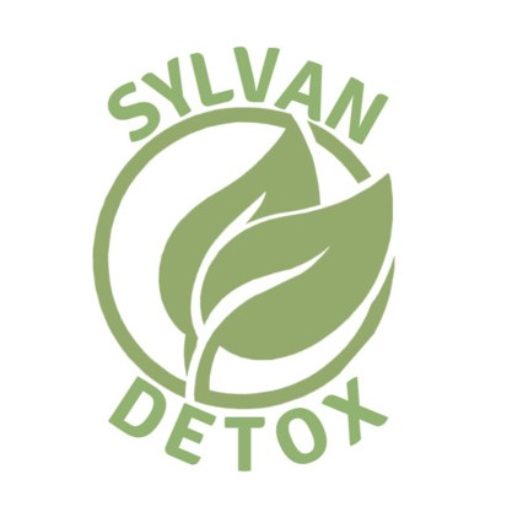What Causes Alcohol Withdrawal Symptoms?
Quitting drinking alcohol is not as easy as it may sound to those who have never tried. Alcohol addiction is a serious addiction that needs medical care under a doctor’s oversight. Along with physical withdrawal symptoms like alcohol cravings, headaches, body pain, stomach issues and vomiting, irregular or rapid heartbeat, sweating, fever, and in serious cases, seizures, you will also experience psychological alcohol withdrawal symptoms that can be distressing and cause additional suffering.
Withdrawal symptoms happen because addiction makes changes to the way the brain produces and processes certain chemicals. Your body becomes dependent on alcohol just to function normally, and when you quit drinking, the body needs to readjust itself chemically and detoxify your system. This causes distressing signals to be sent out to the body, and these can be uncomfortable, painful, and cause anxiety. Withdrawal can be so distressing that many people will start drinking again, preferring relapse and the negative health and social implications that come with drinking to the feeling of withdrawal.
Withdrawal happens because alcohol depresses the central nervous system, interfering with the firing of neurons in the brain, and disrupting messages being sent to the central nervous system. GABA (gamma-aminobutyric acid) is the main neurotransmitter affected by alcohol. It is responsible for producing endorphins. When alcohol is introduced into your system, the brain slows or stops producing GABA completely, along with other neurotransmitters like dopamine. Dopamine is important because it takes care of mood regulation, energy levels, motor coordination, enjoyment, and motivation. Drinking causes the brain to depend on the presence of alcohol to tell it to release dopamine over time, and without the alcohol in your system, dopamine production stops, which causes several negative symptoms to occur.
If you or a loved one is suffering from any form of addiction or abuse, please call Sylvan Detox at (818) 308-3099.
Outpatient Rehab in Santa Clarita
Outpatient drug and alcohol rehab may include partial hospitalization programs and intensive outpatient treatment programs. Outpatient drug and alcohol rehab can include many different treatment options, including dialectical behavioral therapy, relapse prevention, and creative healing. Unlike a 12-step program like Alcoholics Anonymous or Narcotics Anonymous, outpatient treatment programs tend to include many different treatment modalities rather than one program–the 12 steps. Also, outpatient treatment involves medical professionals that guide clients along their recovery path.
If you are interested in enrolling in outpatient rehab, you’ll want to find an outpatient rehab near Santa Clarita, CA. Not all addiction treatment centers offer outpatient rehab. Similarly, not all outpatient Santa Clarita drug rehab centers offer detox programs or inpatient recovery programs. It’s helpful to visit rehab for an evaluation. Addiction specialists can recommend the ideal treatment program for your needs.
What Is Outpatient Alcohol Rehab Really Like?
During treatment sessions, outpatient alcohol rehab is not demonstrably different from an inpatient treatment session. The difference is that after outpatient rehab treatments end for the day, clients can leave and return to their homes or attend work or school. Residential inpatient treatment programs provide rooms for clients and supervision; some people need this level of support as they work toward the stability and management of their condition.
During outpatient treatment at rehab centers in Santa Clarita, clients can expect to participate in many different treatment modalities designed to support addiction recovery. Some people will include family therapy in their treatment plans. Others may prefer to rely more heavily on holistic treatments like saltwater therapy or physical therapy. However, most outpatient programs include a strong core of evidence-based addiction treatments like cognitive behavioral therapy.
Just like at a residential treatment center, clients can expect to take part in individual therapy sessions and group therapy sessions. Depending on the type of outpatient program someone enrolls in, treatment might involve 20 hours or less per week. Some partial hospitalization programs might involve more time during the week for treatment.
Also, clients who need dual diagnosis treatment can include it in their addiction treatment program. Many alcohol and drug rehabilitation centers in or near Los Angeles offer dual diagnosis treatment. Many people who have substance use disorders (about one-third) also have a co-occurring mental health disorder like anxiety disorder or bipolar disorder. Clients can get help managing both conditions during outpatient rehab treatment.
Benefits of Outpatient Rehab
Many people prefer outpatient rehab centers because of the flexibility that outpatient treatment can offer. Not everyone wants to commit to inpatient treatment, living away from their family. Conversely, many people transition from inpatient rehab treatment to outpatient treatment as their ability to manage their substance abuse condition improves and they become more stable and less likely to relapse. Flexibility is a key benefit of outpatient rehab but for many, affordability is another important benefit. Because less support is involved and clients live at home, there is less cost involved in outpatient programs than in most residential treatment programs.
When Is Inpatient Rehab a Better Option?
Unfortunately, outpatient rehab simply is not the best option for everyone. Many clients require drug and alcohol detox as they begin their recovery journey. Withdrawal symptoms can be quite debilitating and also may trigger health emergencies, which is why a residential treatment center is often the ideal place for alcohol and drug detox. Most residential rehabs in the Santa Clarita or Simi Valley area like Sylvan Detox offer medical detox that’s overseen by medical professionals.
The detox process can last a week or longer. During inpatient drug and alcohol detox, clients can obtain treatments that reduce the discomfort and severity of their withdrawal symptoms. Sylvan Detox clinicians can provide medications as well as treatments such as acupuncture and saltwater therapy that are known to alleviate discomfort.
After medical detox, clients can then progress to inpatient treatment that provides a robust level of support. Clients attend rehab during the day and are able to relax in their rooms at night. Luxury rehabs like Sylvan offer clients a wide range of benefits, including chef-prepared meals, lounging areas, games, and more. The key benefit of residential rehab is that it removes clients from their triggers, allowing them to focus entirely on their addiction treatments without distraction. During the early stages of addiction recovery, inpatient rehab is often ideal for clients recovering from alcohol and drug addiction.
Does Insurance Cover Outpatient Rehab for Alcohol in Santa Clarita?
Insurance providers must offer some level of insurance coverage for substance abuse treatment and treatment of mental disorders. However, the level of coverage differs between insurance plans and insurance providers. Clients can contact our recovery center for help determining their level of coverage based on their medical insurance plan. Sylvan accepts most health insurance plans. When you visit an area rehab in Santa Clarita, you can find out if your insurance covers all or a portion of your treatment. Rehab costs do vary depending on the number of services clients need and the length of time they are enrolled in treatment programs.
Outpatient Rehab at Sylvan Detox
Sylvan Detox is located in Woodland Hills, CA. Our alcohol and drug rehab center is a residential treatment and medical detox center. While we do not offer outpatient treatment programs, our network rehab partners in the area do. Our network partners may offer treatment programs like partial hospitalization, intensive outpatient programs, and sober living facilities. If you prefer the outpatient treatment platform to inpatient treatment, we can refer you to outpatient rehab in Santa Clarita or elsewhere in the region. Many of our network partners share our emphasis on individual therapy and addiction treatments that include both medically sanctioned treatments and holistic therapies.
Making the decision to get help for your addiction to drugs and alcohol is the right decision. You can get help at Sylvan Detox choosing the best course of treatment for your needs. Many clients begin with medical detox and inpatient treatment and then follow up with outpatient treatment as they transition back to their lives. Contact us to learn more about our individualized treatment plans and therapies. Our caring team of addiction specialists can help you achieve your recovery goals.

